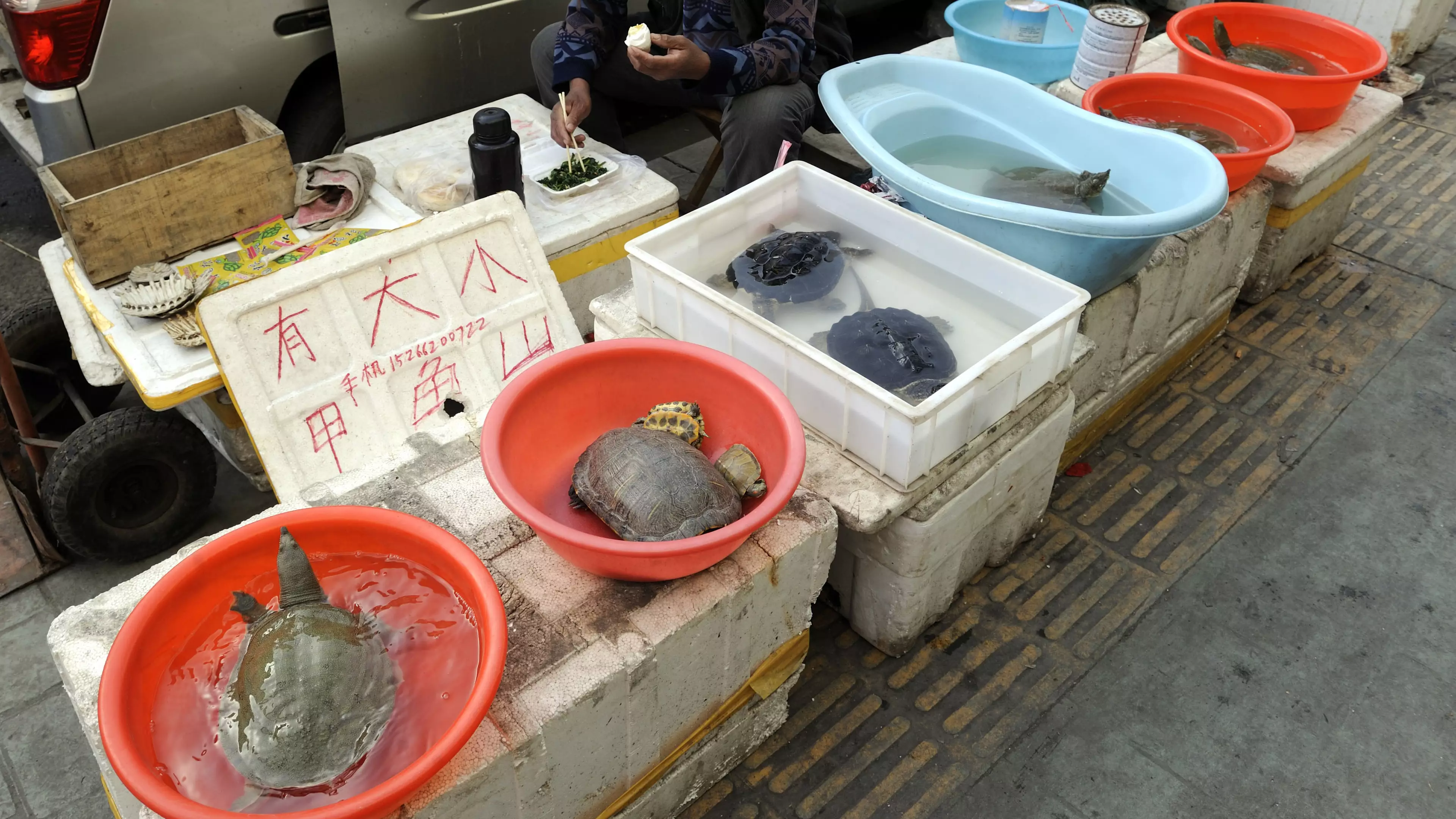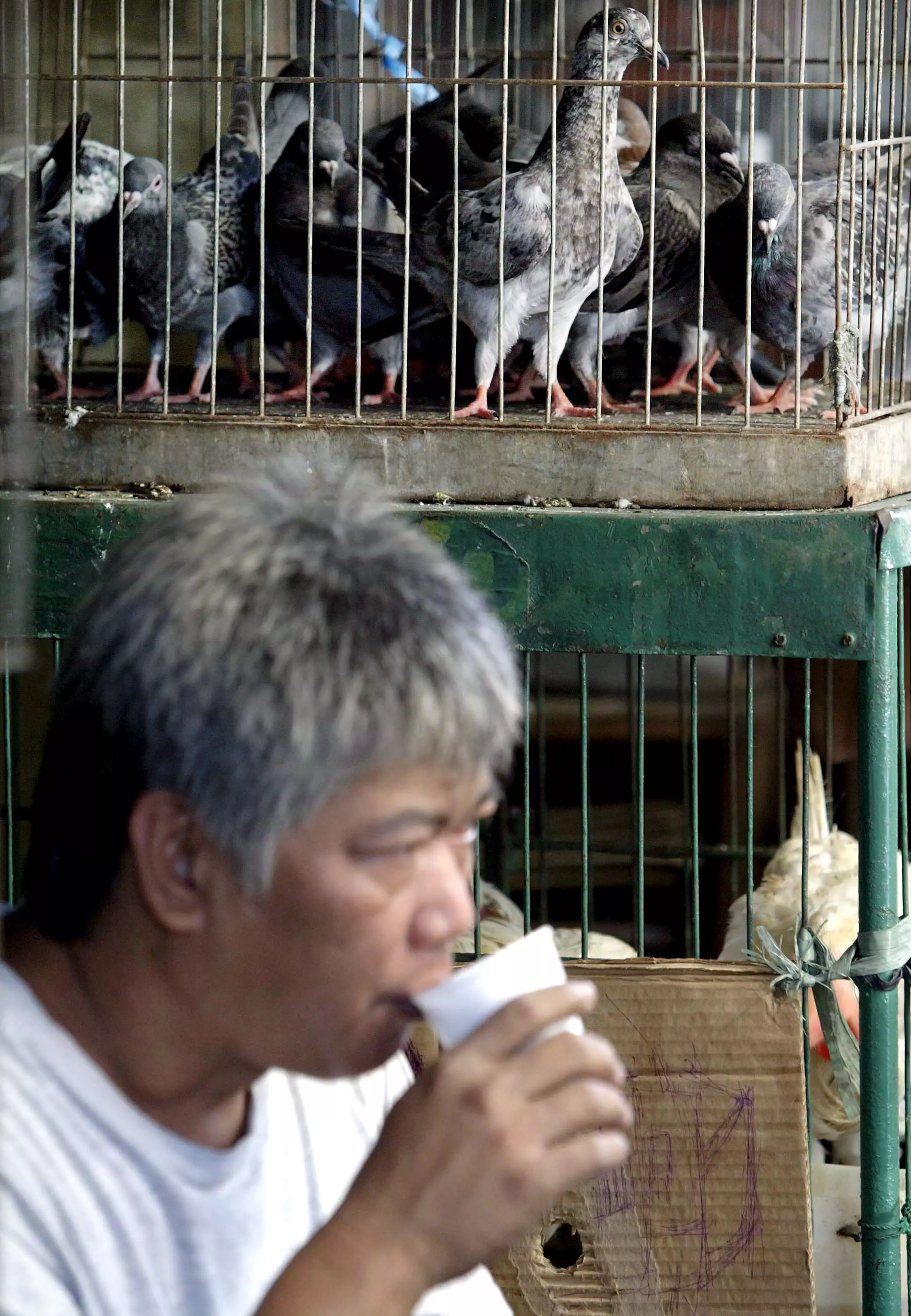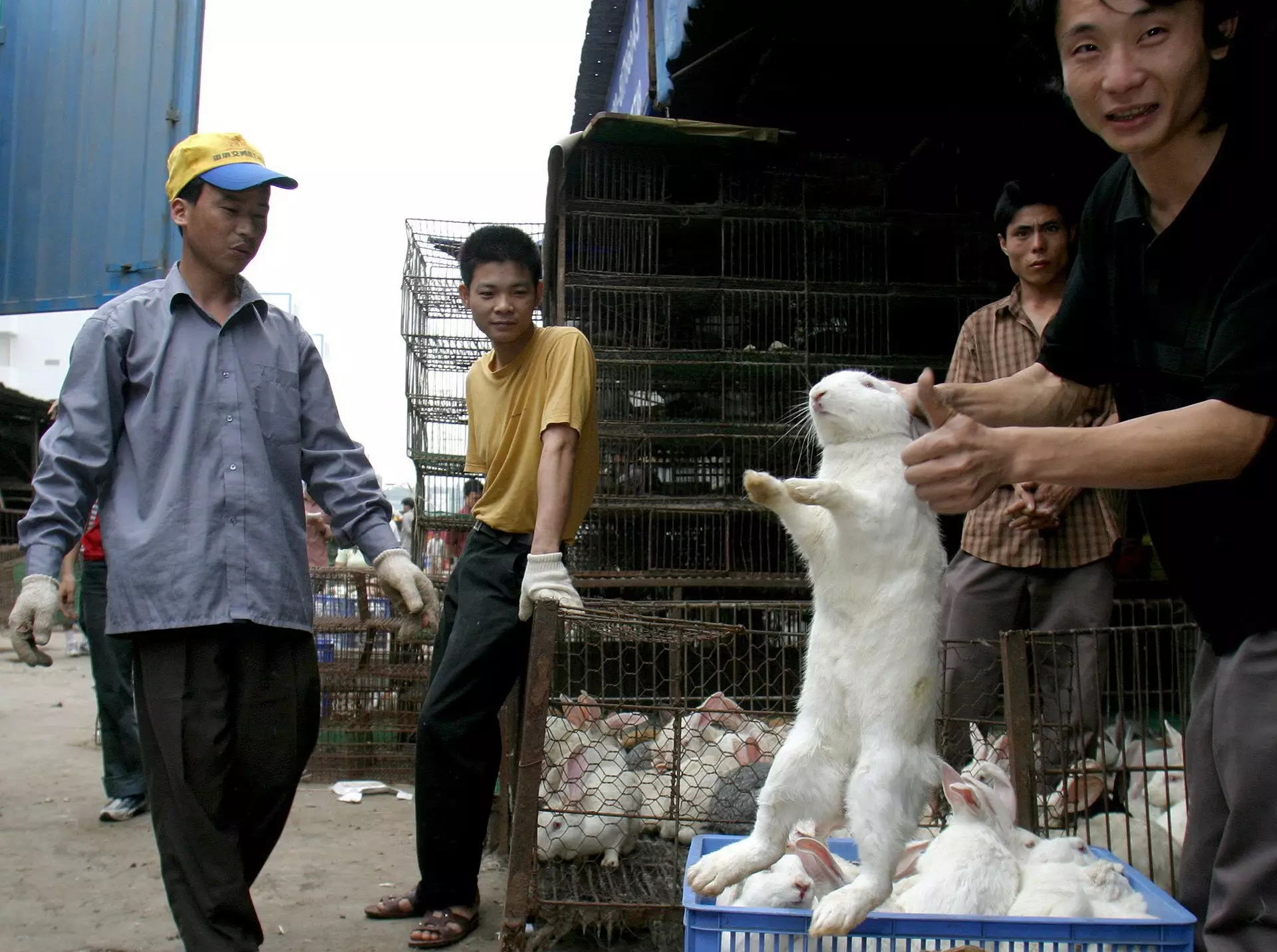
The epicentre of the now global Covid-19 coronavirus outbreak has passed a new law banning the eating of farm-raised wild animals.
It is widely believed the virus originated in a seafood market in Wuhan, capital of China's Hubei province. Hubei province was the first to report coronavirus cases at the end of last year and over 67,500 of the world's near 100,000 cases have come from the region.
At a national level, legislation was passed to ban trade and consumption of wild animals. Authorities started closing down markets across the country selling species ranging from badgers, deer and peacocks to turtles, pangolin and civet cats.
Advert
However, animals bred for consumption on farms rather than captured in the wild - including pigeons, rabbits and quail - are still allowed to be eaten under this national law.
Now, Hubei province has brought in the wildlife protection law - which came into effect yesterday - forbidding the consumption of all wild animals on land, including farm-raised wild animals, as well as endangered and protected wild aquatic species.

No organisation or individual can publicise, solicit, induce or consume illegal wild animals and their products, or engage in illegal wildlife trading by publishing advertisements, making signboards or recipes.
Advert
If scientific and medical teams need to use wild animals for non-food-related work purposes, they must undergo strict applications and quarantine inspections.
The move comes after speculation that the virus could have come from wild animals. Scientists from the Chinese Centre for Disease Control and Prevention claim humans caught the virus from animals sold as food at a market in Wuhan. The Huanan Seafood Wholesale Market has been shut down since the beginning of January.

China's measures to combat coronavirus have been drastic, but seem to be starting to achieve results. While the outbreak grows apace worldwide, the Hubei province reported today there had been no new cases of the virus outside of the hub of Wuhan for the first time since the the spread began.
Advert
Wuhan itself reported 126 new cases on Thursday but this is starting to plateau after weeks of climbing numbers and there is hope the number of new cases within the city could drop to zero by the end of the month.
Elsewhere, things aren't so optimistic. South Korea have now confirmed over 6,500 cases, while in Italy - the most severely affected European country - has reported nearly 150 deaths now from its near-4,000 cases. The first person to die in the UK from the infection was confirmed yesterday.
Featured Image Credit: Shutterstock